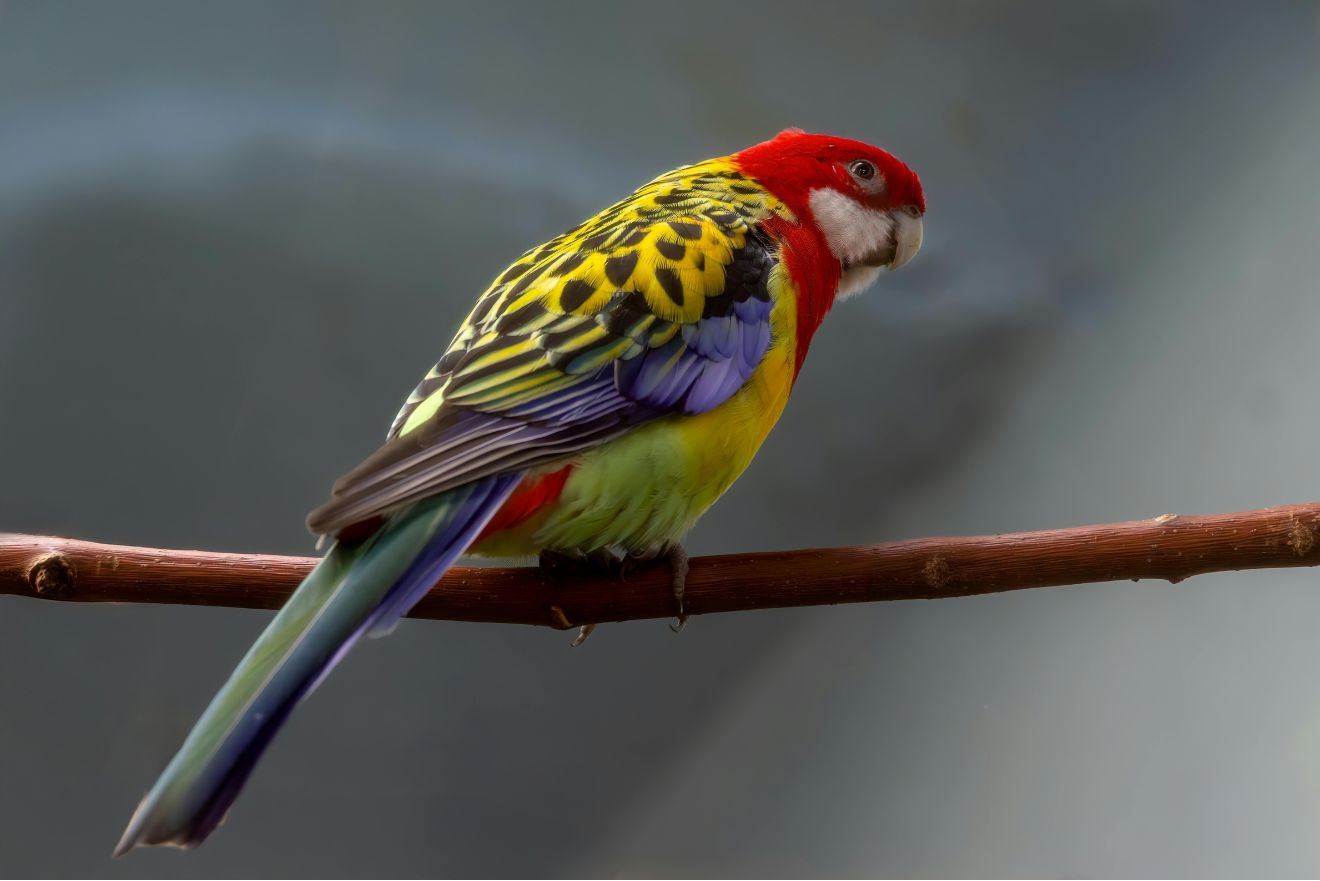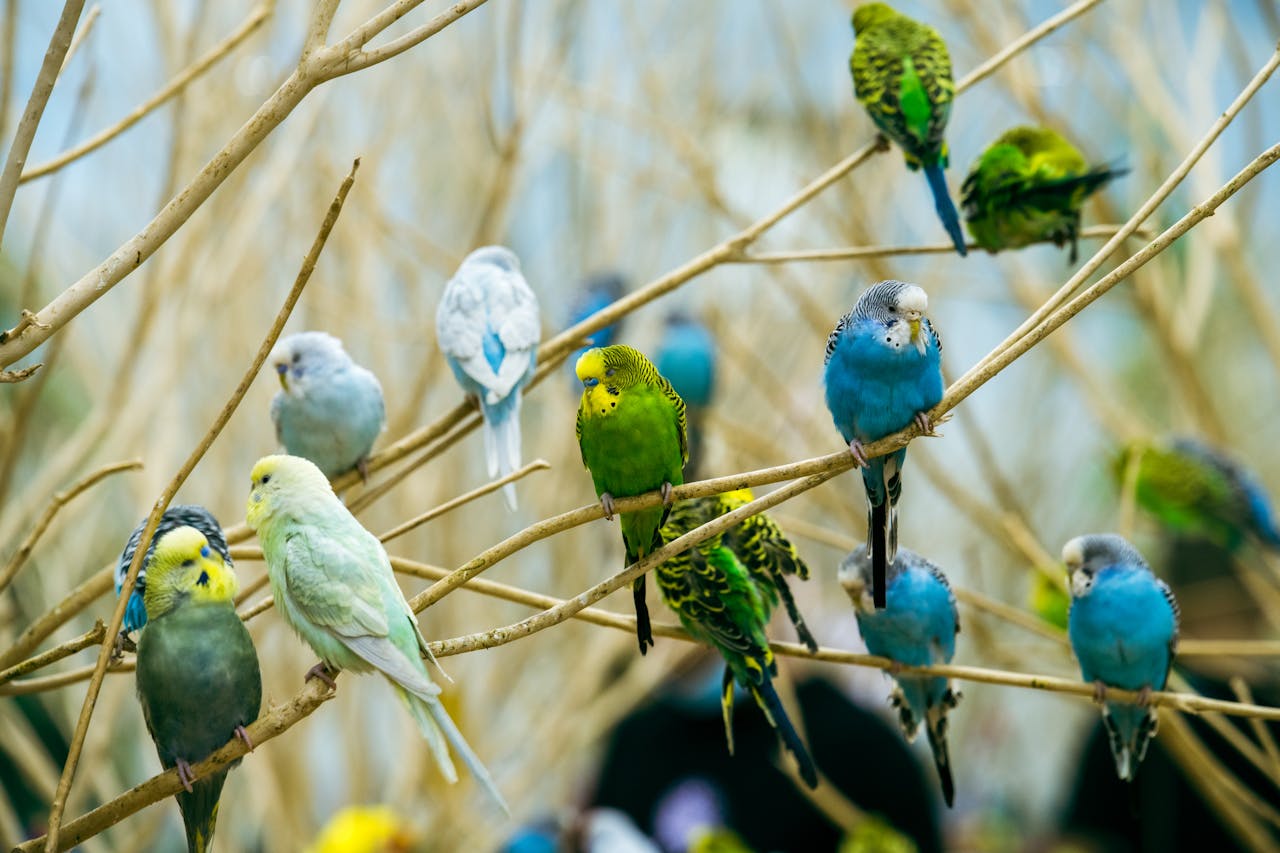African Grey Parrots are among the most intelligent and fascinating pet birds, often regarded for their exceptional ability to mimic human speech and problem-solving skills.
Before diving into the details of their care, breeding, and special characteristics, it’s essential to understand what makes this species so unique.
From their African origins to their long lifespan and deep emotional connections with their owners, African Greys require dedicated attention and a stimulating environment to thrive.
This guide will take you through every aspect of owning and caring for an African Grey Parrot, ensuring you are well-equipped for this lifelong commitment.
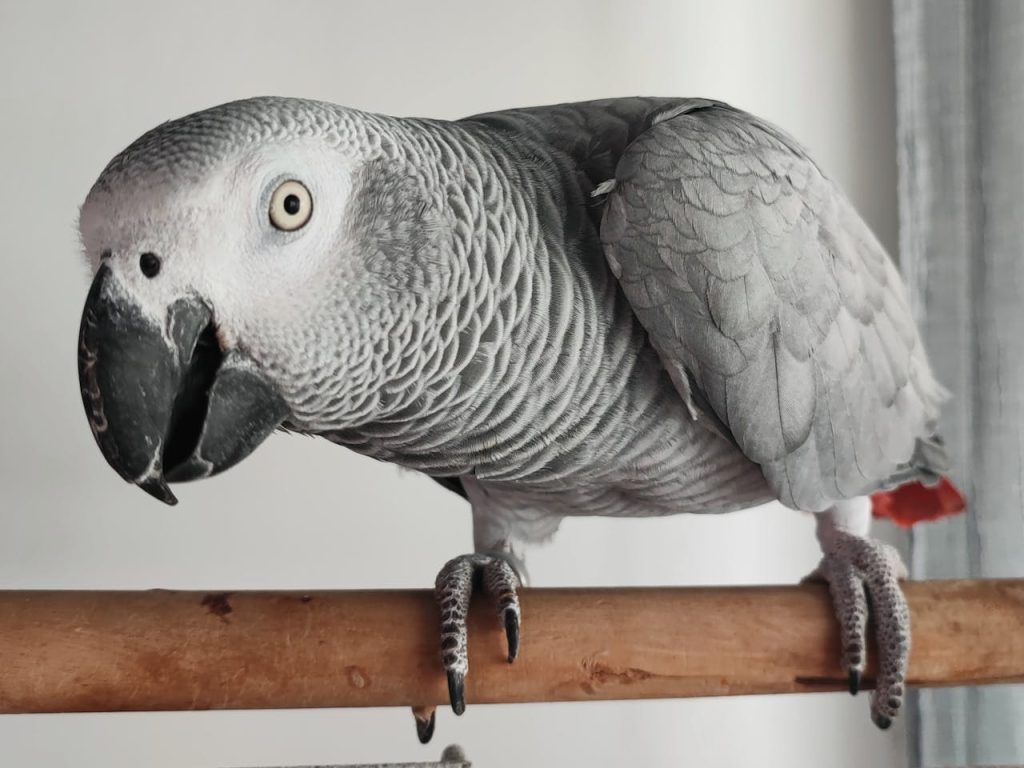
Table of Contents
Introduction
African Grey Parrots are widely regarded as one of the most intelligent bird species in the world. Known for their exceptional ability to mimic human speech and solve problems, these birds make fascinating pets for dedicated owners.
However, they require significant mental stimulation, proper care, and a long-term commitment. This guide covers everything you need to know about African Grey Parrots, from their origin and characteristics to care, breeding, and common challenges.
Origin of African Grey Parrots
African Grey Parrots originate from the dense rainforests of Central and West Africa, including countries like Gabon, Ghana, and the Ivory Coast. These regions provide the ideal environment for their survival, with humid conditions, dense foliage, and an abundance of food sources.
In the wild, they are often seen in flocks, engaging in social behaviors and vocalizations to communicate with one another. Due to deforestation and illegal pet trade, their population in the wild has been declining, making conservation efforts increasingly important.
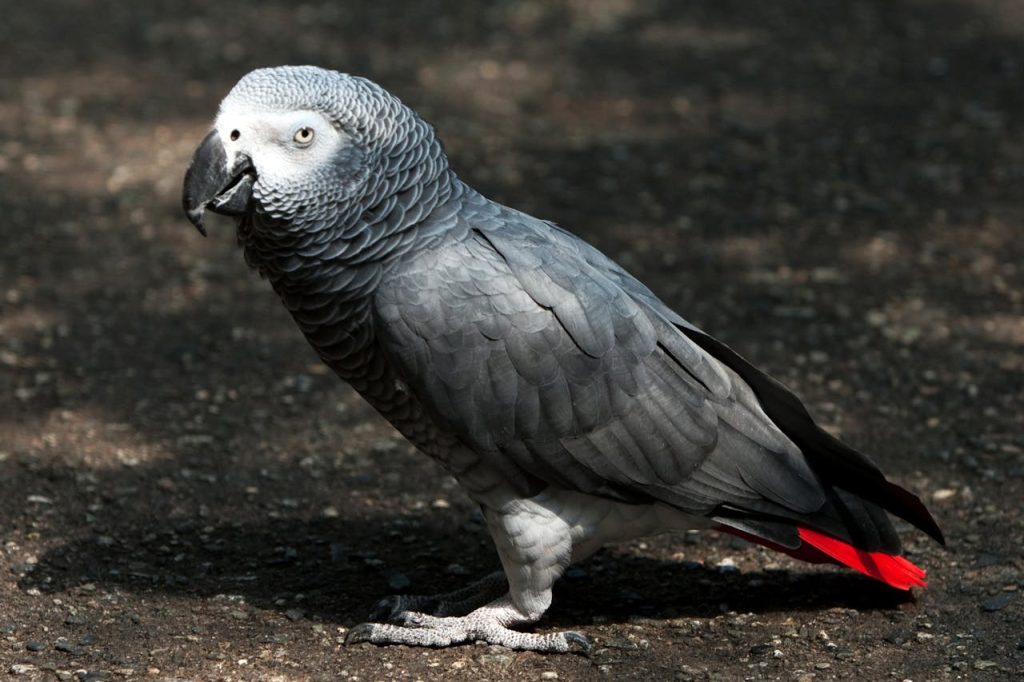
Physical Traits: Color, Size, and Lifespan
African Grey Parrots are medium-sized birds, typically growing to 12-14 inches (30-36 cm) in length with a wingspan of up to 20 inches (50 cm). Their distinctive grey plumage is complemented by a white face mask and bright red tail feathers, making them visually striking.
They have strong, curved beaks designed for cracking nuts and seeds, along with keen eyesight that helps them detect food and predators in the wild.
With proper care, they can live between 40 to 60 years, meaning owning one is a long-term commitment that requires planning for their well-being throughout their lifetime.
Unique Traits of African Grey Parrots as Pets
African Grey Parrots are best known for their intelligence and advanced speech mimicry. They can understand context, recognize words, and even associate phrases with actions, making them one of the most intelligent avian species.
Some African Greys have been known to develop vocabularies of over 1,000 words, allowing them to hold basic conversations with their owners. They also form deep emotional bonds with their human companions, often displaying affection or distress when separated.
However, their high intelligence also means they require constant mental stimulation to prevent boredom, which can lead to feather plucking or destructive behavior if neglected.
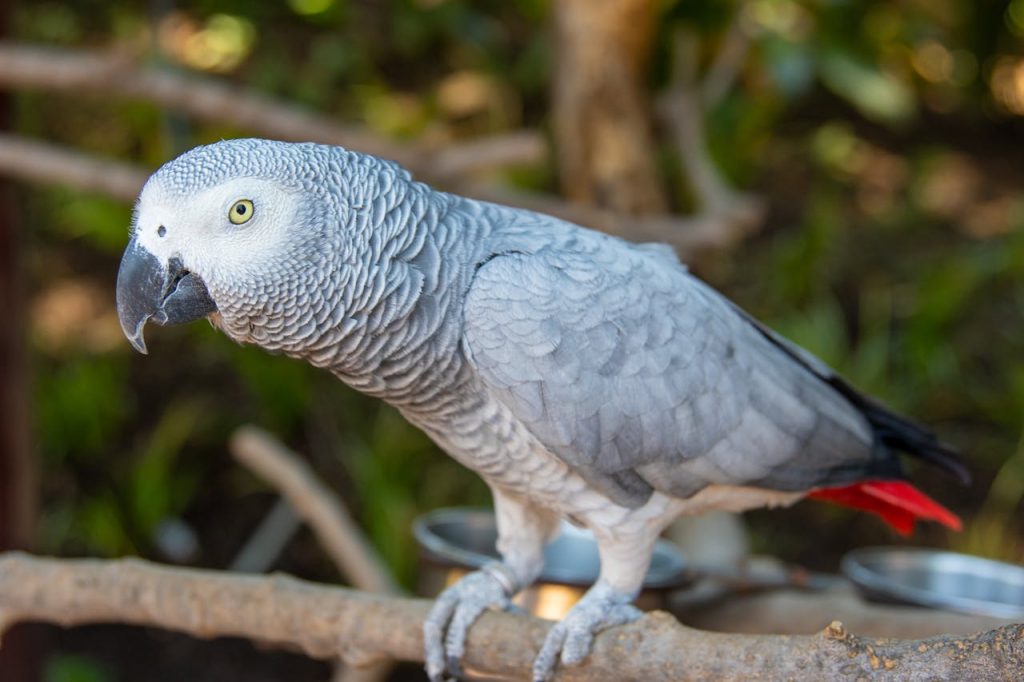
Choosing the Right African Grey Parrot
Selecting a healthy African Grey Parrot is crucial for a rewarding pet experience. When choosing a bird, look for bright, clear eyes, clean feathers, and active behavior.
A healthy parrot should be alert, interactive, and responsive to human presence. Avoid birds that appear lethargic or have ruffled feathers, as these may be signs of illness.
If possible, purchase from reputable breeders or rescues to ensure the bird has been well-socialized and not taken from the wild, which can contribute to conservation issues.
Diet and Nutrition
African Grey Parrots require a balanced diet to maintain their health and cognitive abilities. Their primary diet should include high-quality pellets, fresh fruits, vegetables, and nuts. Foods rich in calcium, vitamin A, and omega fatty acids are particularly beneficial.
Avoid feeding them avocados, chocolate, caffeine, or foods high in salt and sugar, as these can be toxic. Regularly providing fresh water and rotating food choices will help keep their diet varied and prevent nutritional deficiencies.
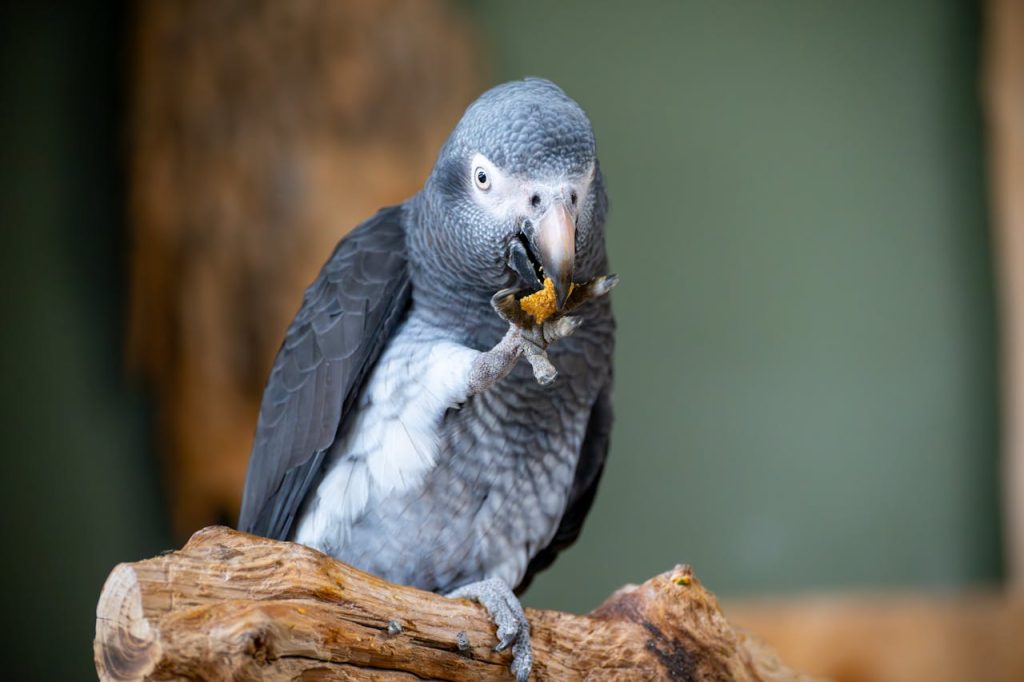
Housing and Environment
Providing a spacious and well-equipped living environment is essential for an African Grey Parrot’s health and happiness. Their cage should be large enough for them to spread their wings fully, ideally measuring at least 36x24x48 inches.
Perches of varying sizes, chew toys, and interactive puzzles should be included to keep them mentally and physically stimulated. Position the cage in a quiet yet social area of the home, ensuring they feel included but not overwhelmed by excessive noise.
Grooming and Hygiene
Maintaining proper grooming and hygiene for African Grey Parrots is essential for their overall health and well-being. Regular misting or access to a shallow bathing dish helps them keep their feathers clean and free from dust or debris.
Their beaks and nails should be naturally trimmed by providing wooden perches, cuttlebones, or chew toys, which help prevent overgrowth. During molting periods, they may shed old feathers, which is a natural process, but ensuring a nutrient-rich diet will aid in healthy regrowth.
Owners should also clean their cages and food bowls frequently to prevent bacterial infections and keep their environment safe.
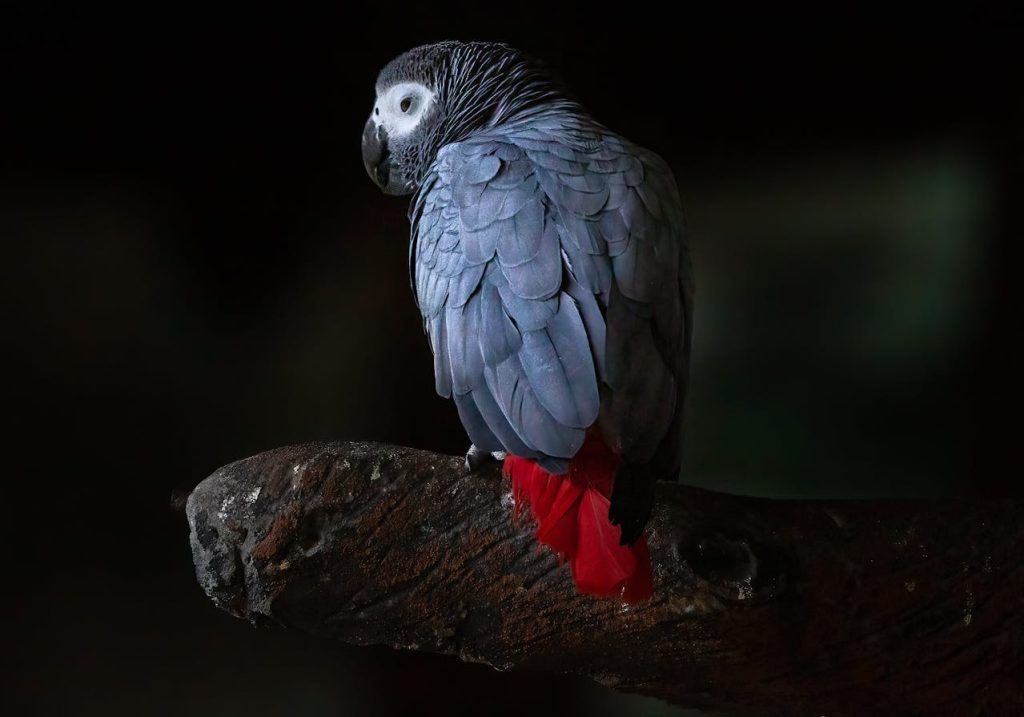
Fun Facts About African Grey Parrots
- African Grey Parrots have intelligence comparable to a 5-year-old child.
- They can recognize colors, shapes and even count objects.
- In the wild, they form flocks of up to 200 birds and communicate through complex vocalizations.
- Some African Greys mimic not only words but also tones, emotions, and environmental sounds.
- Research shows they can understand emotions and respond accordingly.
Training and Socialization
African Greys need consistent, positive reinforcement training to develop good behaviors. Teaching them commands, social interactions, and speech requires patience and routine engagement. They thrive on structured learning and enjoy problem-solving activities, which help keep their minds sharp.
Common Health Issues
- Feather Plucking – Often caused by stress, boredom, or malnutrition.
- Respiratory Infections – Symptoms include wheezing, nasal discharge, or lethargy.
- Calcium Deficiencies – This can lead to weak bones and tremors.
- Psittacosis (Parrot Fever) – A bacterial infection that affects breathing.
- Obesity – Due to high-fat diets or lack of exercise.
Breeding Information
African Greys typically lay 3-5 eggs per clutch, which are incubated for about 28 days. Both parents are involved in caring for the chicks, providing warmth and feeding them until they become independent at around 12-14 weeks old.
Signs of a Healthy Bird
A healthy African Grey will have bright eyes, smooth and clean feathers, an active demeanor, and a strong appetite. Any signs of weight loss, excessive sleeping, or feather plucking may indicate an underlying health issue requiring veterinary attention.
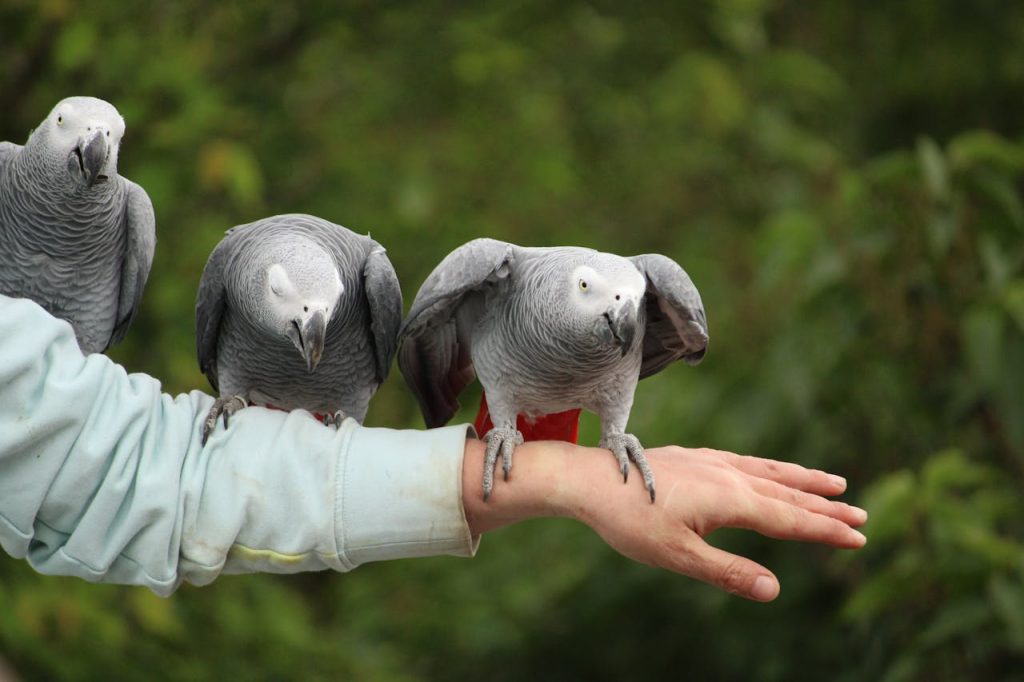
Interaction with Other Pets
African Greys are best suited for single-bird households but can coexist with other birds or pets if introduced carefully. They should always be supervised around cats, dogs, or larger birds to ensure their safety.
Noise Levels
Although African Greys are not as loud as some other parrot species, they are capable of making loud vocalizations. They often mimic household sounds like ringing phones and microwaves, which can sometimes be surprising or disruptive.
Challenges of Owning an African Grey Parrot
- Requires daily social interaction and training.
- Prone to behavioral issues if not mentally stimulated.
- Long lifespan (40-60 years), making ownership a lifelong commitment.
- They can be loud, demanding, and prone to separation anxiety.
- Needs a large and enriched environment to stay happy.
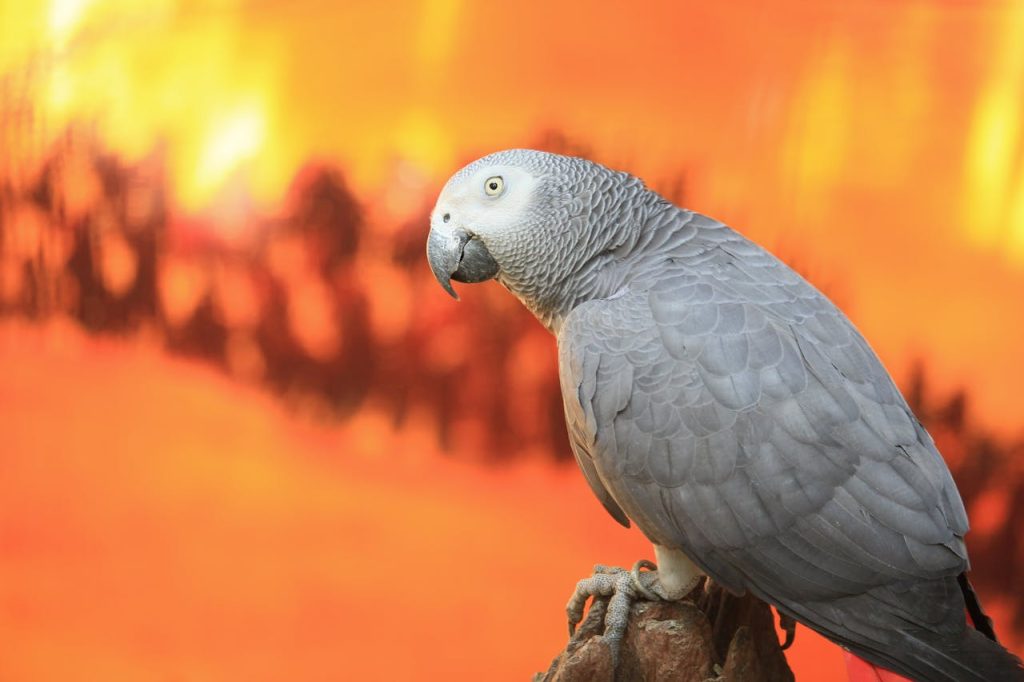
Learn More About Bird Breeds
Lovebirds are just one of many fascinating bird breeds that make wonderful pets. If you are interested in exploring more about pet birds, check out our guides on Cockatiels for Beginners, Macaws Majestic Pet Birds, and Lovebirds Behavior & Bonding to discover the unique traits, care needs, and joys of owning these amazing avian companions.
Conclusion
African Grey Parrots are among the most intelligent and rewarding pet birds, but they require dedicated care, mental stimulation, and a long-term commitment.
Their ability to mimic speech, form strong bonds, and display problem-solving skills makes them fascinating companions.
However, potential owners must be prepared to invest time in socializing, training, and maintaining their health. With the right environment, a balanced diet, and consistent interaction,
African Grey Parrots can thrive and become beloved lifelong companions, bringing joy and amazement to their owners for decades to come.
FAQs
Is an African grey parrot a good pet?
Yes, but they need experienced owners. They are intelligent, social, and live long, requiring constant care and attention.
Can African grey parrots talk?
Yes, they are excellent talkers and can mimic words, sounds, and even emotions.
What is special about African grey parrots?
They are highly intelligent, great at mimicking speech, and form strong emotional bonds with their owners.
Is an African grey parrot legal in India?
No, they are protected under wildlife laws, and keeping one without proper permits is illegal.


